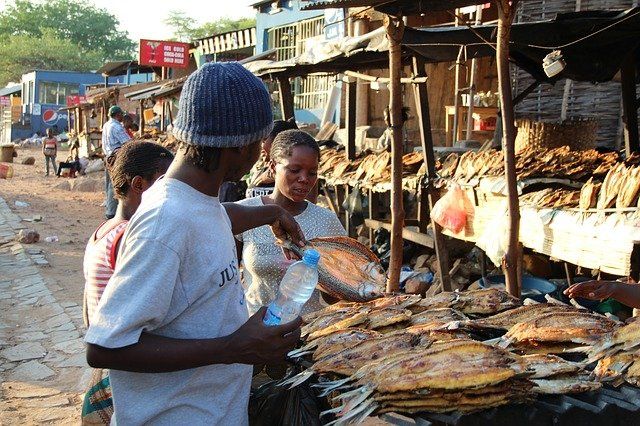People seem to have forgotten the work of missionaries very quickly. Of course, there are still missionaries in Zambia and room for more, but the major denominations across the country have abandoned the Evangelical and often Reformed teaching brought to them by generations of faithful missionaries.
They have succumbed too easily to a form of religion that is devoid of evangelical fervour and allows unconverted men to be influential and occupy the pulpits.
I think of the Reformed Church of Zambia and the United Church of Zambia, which are major denominations, operating on Presbyterian lines. These have gathered under their authority much of the fruit of previous missionary work by swallowing up small church groupings around the country. They have largely neutralized the Evangelical testimony that they once found.
It is also disappointing to see groups of churches formed by Brethren missionary work departing from a clearly Evangelical position. Of course, I am generalizing. There are some wonderful exceptions and many dear brethren who are labouring faithfully.
Local culture
There are also many true believers within these main denominations. It must, however, be observed that the denominations quickly became part of the local scene and culture.
All these denominations are well represented within Lusaka, Zambia’s capital. They attract large congregations both in the salubrious parts of the town and in the high-density ‘compounds’.

There is a fair scattering of Arminian Baptist churches in the country, some of which originated from American Baptist missionary work, while others trace their history back to work by South African Baptists. You can find well-meaning brethren within these churches, but the theological stance is sometimes feeble.
I have taught one course this year in a Southern Baptist theological seminary in Lusaka and have recognised that some of the men they are training have definite potential, even though they have learned little in the regular ministries of their churches.
Superstition
Many of the countries of southern Africa are still engulfed by witchcraft. Zambia is by no means as bad as her neighbours, but the wizard and witchdoctor are influential in many lives, even in the cities.
Reliable sources say that these Satanists can exercise remarkable powers and bizarre happenings are sometimes reported on TV with great seriousness.
The Roman Catholic Church, which has a huge presence in Zambia and has done a great deal in education, community development and medicine, lacks the gospel and its power.
Catholicism is acceptable to large numbers of people who have no intention of turning from their superstitions. Perhaps they see the priest as a kind of witchdoctor!
Charismatic movement
The charismatic movement in Zambia presents itself as orthodox Christianity. It has a huge following, with a 24-hour TV station in Lusaka tied into the highly charismatic American Trinity Broadcasting Network.
There are large gatherings in Lusaka and elsewhere on Sundays. Some of these have their origins in Nigeria, some are homegrown. There is the inevitable talk of healing and promises of material wealth. People fall over in their services and the real issues of the gospel are seldom treated seriously.
Images of vast and wealthy charismatic organizations in the USA, headed by people like Benny Hinn and Kenneth Copeland, seem to have impressed many in Africa. This is the religion they want, and they have seen it all on TV.
I fear that these international TV personalities have exploited the average Zambian’s consciousness of Christian things and his readiness to be excited by a charismatic environment on the one hand and by ‘spirits’ on the other. This extends to all levels of the community, including many influential people.
Decline
As a result, traditional evangelistic work among students, on the campuses of the two universities and the various colleges, has gone into sharp decline. Nationwide student movements are now the ‘property’ of one charismatic movement or another. Here, I believe, lies the greatest threat to the gospel in Zambia.
Indeed, a new generation of unbelievers could emerge who see through the extravagant claims of the charismatic leaders. They could react by telling the nation that there is nothing in the Christian gospel after all; that it is one massive confidence trick intended to deceive and exploit the superstitious and simple-minded.
Open door
Nevertheless, there is still a glorious open door for the true gospel. Everywhere people are ready to hear what Christians have to say, to receive literature and accept the authority of the Bible. There is still huge respect accorded to Evangelical preaching.
At Lusaka Baptist Church (LBC) we have faced no resistance to broadcasting a 30-minute sermon each week, at modest cost, during prime viewing-time on nationwide TV.
Through the various departments of the church, we are able to reach many sections of the community. We have as many Sunday school children as we can handle!
Our sister Reformed Baptist churches around Lusaka have their own gospel projects, and we are all engaged in church planting in other provincial centres around Zambia. Between 400 and 500 people attend our Sunday morning gospel service. Our dear friends at Kabwata Baptist Church, also in Lusaka, under the leadership of Pastor Conrad Mbewe, are in much the same position. There are sister churches in Zambia’s Copperbelt Province, the industrial heartland of the country.
Also, and particularly noteworthy, there is a group of churches (still called ‘chapels’) centred upon Kitwe, the provincial capital of Copperbelt, that have their roots in Brethrenism.
These churches are doing a fine work. They are constantly opening up new congregations in townships around the city. They are zealous for the cause of the gospel and are generally committed to the Reformed Faith. They have seen extraordinary success for their labours and prayers, and we rejoice with them.
Urgency
Zambia is wonderfully blessed by God! There is an astonishing openness to the gospel and many open doors. But our Reformed Baptist churches had reservations when, in 1991, the President declared Zambia to be a Christian nation. Today, many say they are Christians who have no vital, saving knowledge of the Lord.
We face a huge harvest field and an urgent one. Mostly because of the HIV/AIDS pandemic, the life expectancy for a man is around 35 years! The government recently reported that 300 Zambians are dying each day from AIDS. The real figure could be considerably higher. Please pray that we shall all be stirred to unremitting gospel labour.
There is a deeper need too. For reasons I do not really understand, few younger men in Zambia are being raised up with clear pastoring and preaching gifts. I am passionately concerned about this. The opportunities and needs are so vast.
I am thankful for the many zealous believers around us, but where is the young army of dedicated Zambians who have cast the world behind their backs and are aching to preach Christ? This could determine whether Evangelical testimony in Zambia will rise or fall over the next 10 years.















